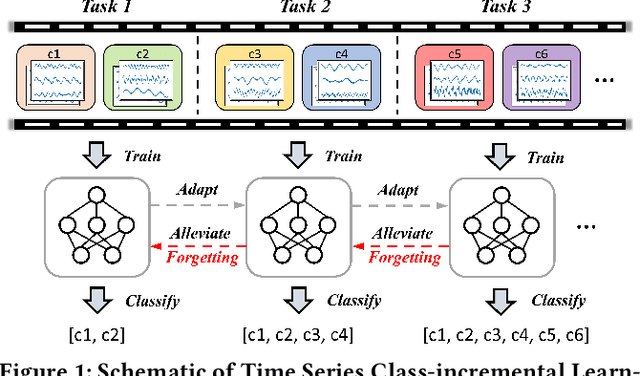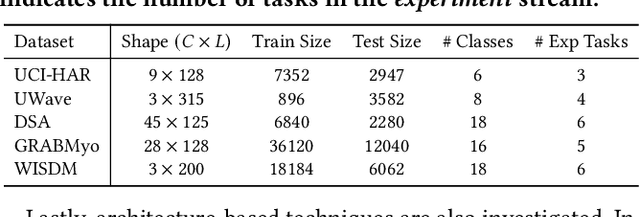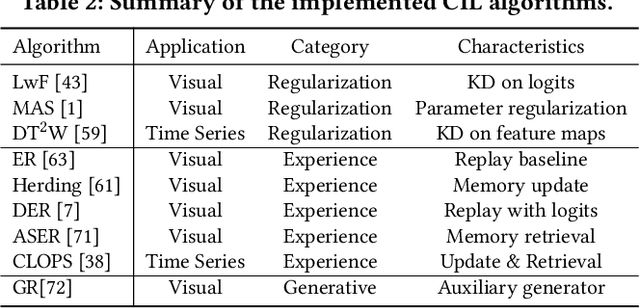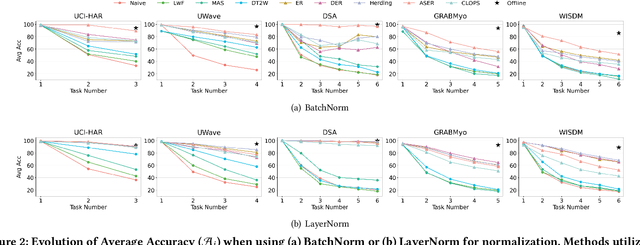Zhongzheng Qiao
It's TIME: Towards the Next Generation of Time Series Forecasting Benchmarks
Feb 12, 2026Abstract:Time series foundation models (TSFMs) are revolutionizing the forecasting landscape from specific dataset modeling to generalizable task evaluation. However, we contend that existing benchmarks exhibit common limitations in four dimensions: constrained data composition dominated by reused legacy sources, compromised data integrity lacking rigorous quality assurance, misaligned task formulations detached from real-world contexts, and rigid analysis perspectives that obscure generalizable insights. To bridge these gaps, we introduce TIME, a next-generation task-centric benchmark comprising 50 fresh datasets and 98 forecasting tasks, tailored for strict zero-shot TSFM evaluation free from data leakage. Integrating large language models and human expertise, we establish a rigorous human-in-the-loop benchmark construction pipeline to ensure high data integrity and redefine task formulation by aligning forecasting configurations with real-world operational requirements and variate predictability. Furthermore, we propose a novel pattern-level evaluation perspective that moves beyond traditional dataset-level evaluations based on static meta labels. By leveraging structural time series features to characterize intrinsic temporal properties, this approach offers generalizable insights into model capabilities across diverse patterns. We evaluate 12 representative TSFMs and establish a multi-granular leaderboard to facilitate in-depth analysis and visualized inspection. The leaderboard is available at https://huggingface.co/spaces/Real-TSF/TIME-leaderboard.
Continual Learning for Robust Gate Detection under Dynamic Lighting in Autonomous Drone Racing
May 02, 2024



Abstract:In autonomous and mobile robotics, a principal challenge is resilient real-time environmental perception, particularly in situations characterized by unknown and dynamic elements, as exemplified in the context of autonomous drone racing. This study introduces a perception technique for detecting drone racing gates under illumination variations, which is common during high-speed drone flights. The proposed technique relies upon a lightweight neural network backbone augmented with capabilities for continual learning. The envisaged approach amalgamates predictions of the gates' positional coordinates, distance, and orientation, encapsulating them into a cohesive pose tuple. A comprehensive number of tests serve to underscore the efficacy of this approach in confronting diverse and challenging scenarios, specifically those involving variable lighting conditions. The proposed methodology exhibits notable robustness in the face of illumination variations, thereby substantiating its effectiveness.
Class-incremental Learning for Time Series: Benchmark and Evaluation
Feb 19, 2024



Abstract:Real-world environments are inherently non-stationary, frequently introducing new classes over time. This is especially common in time series classification, such as the emergence of new disease classification in healthcare or the addition of new activities in human activity recognition. In such cases, a learning system is required to assimilate novel classes effectively while avoiding catastrophic forgetting of the old ones, which gives rise to the Class-incremental Learning (CIL) problem. However, despite the encouraging progress in the image and language domains, CIL for time series data remains relatively understudied. Existing studies suffer from inconsistent experimental designs, necessitating a comprehensive evaluation and benchmarking of methods across a wide range of datasets. To this end, we first present an overview of the Time Series Class-incremental Learning (TSCIL) problem, highlight its unique challenges, and cover the advanced methodologies. Further, based on standardized settings, we develop a unified experimental framework that supports the rapid development of new algorithms, easy integration of new datasets, and standardization of the evaluation process. Using this framework, we conduct a comprehensive evaluation of various generic and time-series-specific CIL methods in both standard and privacy-sensitive scenarios. Our extensive experiments not only provide a standard baseline to support future research but also shed light on the impact of various design factors such as normalization layers or memory budget thresholds. Codes are available at https://github.com/zqiao11/TSCIL.
 Add to Chrome
Add to Chrome Add to Firefox
Add to Firefox Add to Edge
Add to Edge